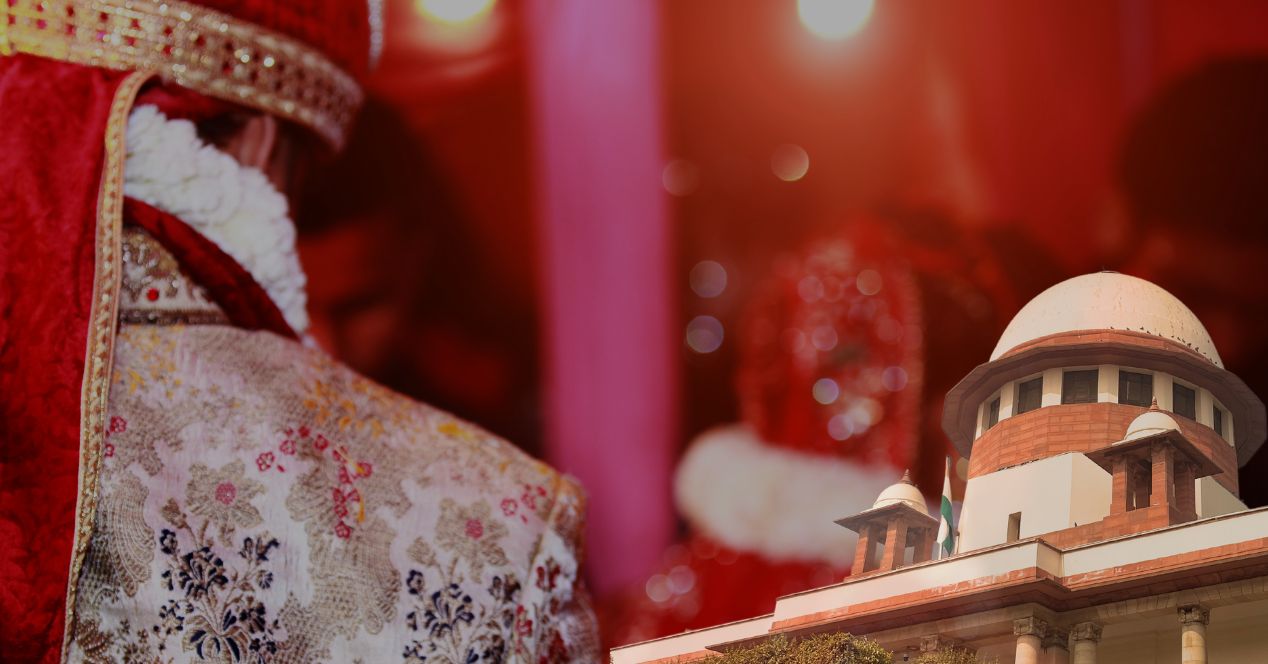Analysis
‘Song and dance’ about ‘wining and dining’
The facts of a case can get lost in screaming headlines and turf wars on social media, as they did for a Supreme Court case on marriage

“A marriage is not an event for song and dance and wining and dining…”
A catchy fragment in a recent Supreme Court judgement became fodder for triumphalism and outrage on social media earlier this month. The trads latched onto it as the latest onslaught in the “war on liberalism”; some of their opponents railed against the archaic outlook of the top court. Even in the mainstream media, we saw headlines like: “Hindu marriage not just ‘song & dance’ and ‘wining, dining’ but a sacred process: SC”
But the truth, when seen in context, was a lot more prosaic. Divorced from the facts, a court’s decision can often make little sense. The line about ‘wining and dining’ is from a judgement authored by Justices B.V. Nagarathna and Augustine George Masih in a case titled Dolly Rani v Manish Kumar Chanchal.
The case title pits the former couple as adversaries, but they were on the same side in the Supreme Court. They had jointly approached the Court with a prayer to transfer their divorce petition from a family court in Muzaffarpur, Bihar to one in Ranchi, Jharkhand.
The parties are commercial pilots who got engaged in March 2021, following which they obtained a “marriage certificate” as proof of solemnisation from the Vadik Jankalyan Samiti, a registered society in Uttar Pradesh working on family welfare. Based on this certificate, they obtained a “Certificate of Registration of Marriage” as per the Uttar Pradesh Registration Rules of 2017. The wedding ceremony was supposed to take place in October 2022 but the relationship broke down before that date. Dolly Rani claimed that there was a demand for dowry by Manish Kumar’s family, and she had filed a criminal complaint in November 2022.
Before the Court, both parties submitted there was no question of a divorce since a marriage between them hadn’t been solemnised in the first place. They said they had to obtain a marriage certificate “due to certain exigencies and pressures” but there had been no ceremony with “customs, rites and rituals” or any cohabitation. The parties also requested that the Court quash the dowry and maintenance cases that Dolly Rani had filed.
While granting this prayer, the Court made certain observations on the validity of a marriage under the Hindu Marriage Act, 1955 (HMA). Looking at the all-important Section 7, the Court noted that “where a Hindu marriage is not performed in accordance with the applicable rites or ceremonies such as saptapadi when included, the marriage will not be construed as a Hindu marriage.”
Registration was a “proof of factum of marriage in a disputed case” but it cannot confer legitimacy to a marriage that hadn’t been completed in accordance with Section 7, the Court observed. The Bench also noted that “Hindu marriage is a sacrament or a samskara” and “has a sacred character.” This observation does not create any new jurisprudence and is hardly the kind of ‘gotcha’ moment that some ‘back-to-roots’ commentators have been tomtoming it as.
Which brings us to the part of the judgement having real-world ramifications. The Court took note of the many instances in recent years, where for “practical purposes” that include obtaining a visa, couples registered their marriage under Section 8 of the HMA without conducting a proper ceremony. “Such practices have to be deprecated,” the judgement says.
As for the “wining and dining” fragment that caused the storm, it begins with the Court urging young men and women “to think deeply” about two things: the institution of marriage and how sacred it is in Indian society. Later in that paragraph, the Court suggests that the purpose of marriage is to [evolve] a family in future which is a basic unit of Indian society.”
This is the part of the judgement that could be open to serious sociological interrogation. For thousands of years, the ‘basic unit’ has functioned in ways that cannot, by any stretch of imagination, be said to be healthy and equal.
As for the sentence in the judgement that began with “A marriage is not an event for ‘song and dance’…”, you should know that it ended with “or an occasion to demand and exchange dowry and gifts by undue pressure leading to possible initiation of criminal proceedings thereafter.”
I wonder why the second half of the observation didn’t make as much noise as the first.
This article was first featured in SCO’s Weekly newsletter. Sign up now!